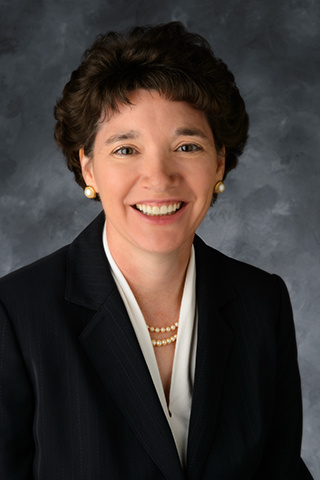Since last fall, more than 130 members of our university community have joined 14 Talent@Iowa committees to improve the work experience of every university employee. As these committees begin implementing initiatives, I’d like to thank them and share more about how their hard work will benefit our community.

Although it’s a multifaceted project, Talent@Iowa can be described simply as a way to connect the dots between many new and existing programs at the University of Iowa to better achieve the institution’s goals. Just as the UI Strategic Plan is a roadmap for the university community, Talent@Iowa gives Human Resources a roadmap for supporting our employees.
One thing my colleagues and I learned from participating in the Talent@Iowa task force last year was that there are many ways HR can reorganize and re-envision itself to better serve campus.
Recent studies have shown that organizations function better when structured less like hierarchies and more like teams. This led to one of the biggest changes Talent@Iowa has implemented so far: reorganizing University HR into an independent unit reporting to the Office of the President. This positions HR as a strong collaborator with campus leadership and increases its focus on strategically partnering with colleges and departments while continuing the important work of processing benefits, payroll, and compliance.
More than 130 staff and faculty have joined 14 Talent@Iowa committees to implement 24 recommendations from the Talent@Iowa task force. Read more at https://hr.uiowa.edu/talent.
As strategic partners, HR professionals across campus can help colleges and departments build healthy, productive teams and improve communication, provide insights and identify opportunities, and help overcome challenges.
This is why Talent@Iowa is implementing changes through committees made up of HR professionals and university community members with expertise in affected areas. We have received considerable interest in helping implement the Talent@Iowa recommendations, and we are embracing this community-focused, team-based, consensus-driven approach.
Talent@Iowa changes will come in three phases. Phase 1, which is the current phase and will be completed in June, includes much behind-the-scenes work that most of campus will experience only indirectly. This includes forming a governance council to coordinate the Talent@Iowa committees, centralizing FMLA processing, and reorganizing University HR’s IT group to better utilize central ITS.
One aspect of Phase 1 that will have far-reaching and visible effects is the recent hiring of Marguerite Granat as director for talent acquisition. Because we are a large and diverse campus, the way we recruit and retain employees affects every department and office.
Marguerite will assist in shaping a talent acquisition strategy that will, amongst other things, help answer questions such as
- How can we improve recruiting to drive diversity?
- Which jobs should be filled from internal applicants, and which from external?
- How do we identify promising candidates, keep them here, and place them in positions where their strengths yield the greatest benefit?
In helping answer these questions, Marguerite, HR leaders, and Talent@Iowa committees will prepare us for Phase 2, which will begin this summer. Phase 2 will include
- Modernizing the Jobs@UIOWA system;
- Further developing our training and onboarding systems;
- And creating a data-dashboard tool for colleges and departments to better understand and make decisions about the human resources in their unit.
These new efforts build on the work of existing projects. The Year of HR Innovation project asks HR professionals across campus to share their best practices and ideas so their benefits can spread. The Working at Iowa survey will continue to track how faculty and staff feel about their work culture and employee experience, highlighting best practices and areas for improvement. These programs show the value of thinking strategically about human resources.
I would like to thank the many people hard at work on this new vision for HR. As the HR functions undergo this transition, it’s important to remember that most of these changes are a realignment to support operational excellence, talent, and the employee experience. At its core, Talent@Iowa seeks new approaches to how we organize ourselves to do our work.